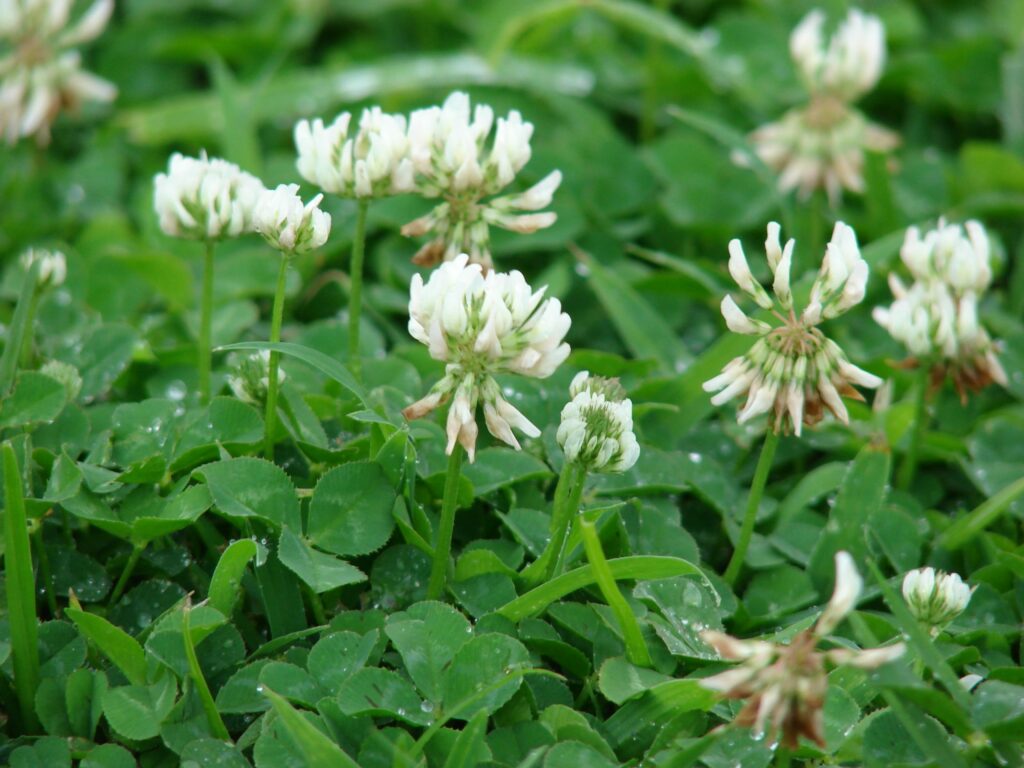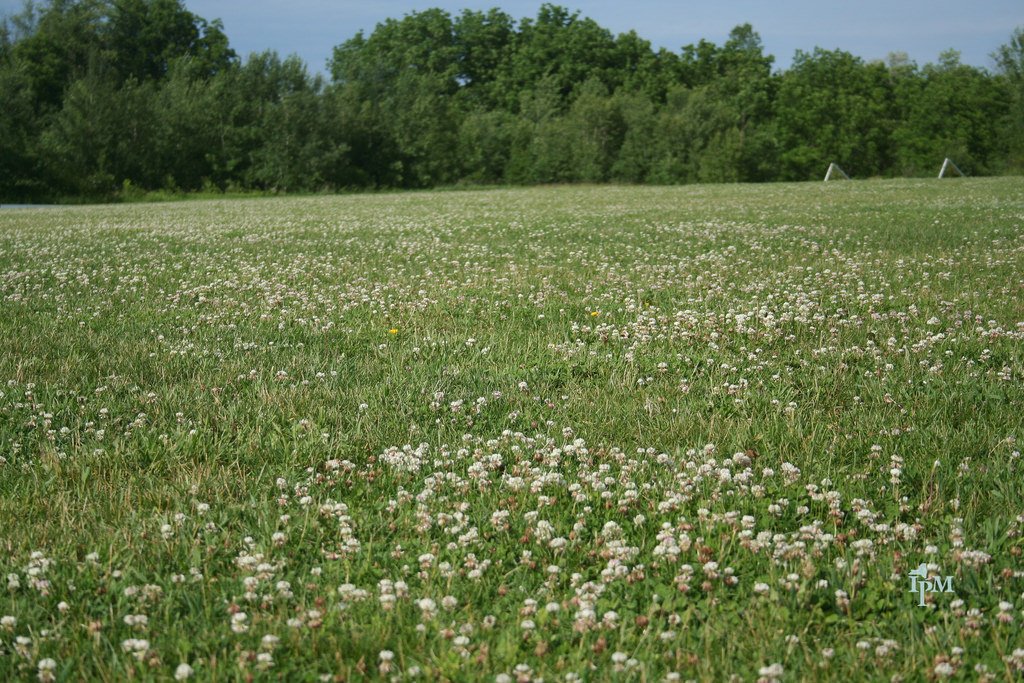White clover (Trifolium repens) is commonly used in pastures across many temperate parts of Australia. A perennial legume, white clover is known to produce high yields for feed crops and is resistant to many adverse conditions. Whether planted purely as a white clover pasture or as part of a mixture of seed varieties, your land, and your stock can benefit from the addition of this hardy legume.
Uses:
It is most often used as a cold-season pasture plant, especially when combined in a mix with other perennial grasses. Its properties also lend it to being an excellent “living mulch” for vegetable gardens, vineyards, and orchards.
Benefits, tolerances, and resistances:
It is known to be a hardy plant which will tolerate high traffic and heavy grazing. Its most lauded feature, however, is its ability to grow in soil usually considered infertile. As long as you fertilize with phosphorus and sulphur, your white clover seeds should grow in just about any soil.
The plant itself produces and fixes atmospheric nitrogen, which often results in a noticeable increase in the growth of companion grasses. This is one of the reasons this white coloured clover is added to part of a pasture seed mix.
Its crops will tolerate shade and frost, which adds to their appeal as a winter crop. It is of high nutritive value to animals which graze on it, providing a good amount of protein.
This clover is often recommended as a ‘living mulch’ between rows of trees, vegetables, or fruit bushes. Its ability to thrive in moist, shady places and tolerance for traffic makes it perfect for those locations, and its nitrogen production is beneficial for the neighbouring plants. The shallow yet dense root system prevents erosion and suppresses weeds.
Bees love white clover flowers for both pollen and nectar. People who grow fruit or trees which rely on bees for pollination may find that the presence of white clover improves pollination.
Disadvantages and weaknesses:
This clover needs moisture. It doesn’t tolerate drought conditions very well and needs summer rain or irrigation to thrive. Whilst it will grow more successfully in infertile conditions than other plants, it will not grow without a decent level of phosphorus in the soil. Luckily, this can be solved with some simple fertilizing.
Clovers are a plant known to tolerate acidic soils, but white clover is known to be less tolerant of soils above pH 7 than other varieties. It also prefers soils above pH 5.8. So, if your soil sits within the pH 5.8 – 7 range you’ll have some happy, thriving white clover. Outside that range, it might struggle.
White clover is relatively resistant to leaf diseases but can be prone to root or stolon rot in adverse conditions. A build-up of vegetation on aged stems and stolons can lead to susceptibility to developing disease and insect problems. However, regular cutting or grazing encourages new plant growth and removes this risk. In a pasture or a well-maintained living mulch, the risk of diseases and pests is low.
Where to plant:
Southern areas of Australia with reasonable rainfall are the locations which will see the most successful white clover crops. Whilst the soil type and conditions rarely need to be considered when deciding on whether to plant white clover or not, rainfall is. For white clover to survive a summer there needs to be either irrigation (or watering in smaller patches) or rainfall.
When to plant:
It is best planted in mid-autumn to early winter in moist conditions in a dryland area. In an irrigated or tablelands area, it can be planted in spring. The amount of seed mix needed will be between 1-2 kilograms per hectare if used in a mix.
If you’re planting a purely white clover crop it’s best to double or triple the amount of seed used, therefore using between 2 – 5 kilograms per hectare. Talk to your local seed supplier for recommendations for your specific area. Germination should occur around seven to 10 days after planting.
FAQs
1. Where does white clover grow best?
It grows best in cool, moist weather on well-drained, fertile soils with a pH between 5.8 to 7.
2. What is white clover good for?
White clover tea is good for general health and detoxification. Its infusion is also anti-inflammatory and beneficial to the immune system. It can also be used to relieve coughs and colds.
3. Which clover is best for nitrogen fixing?
Red clover, a vigorous crop that adds nitrogen to the soil, is an effective nitrogen fixer. It can fix up to 250kg/ha of nitrogen in its first full year, an advantage over other clovers.
4. How long does white clover take to establish?
Seeds become viable 12 days after flowering but require a month to ripen fully. Clover seeds have 3-6 seeds per pod and begin to develop stolons 7 weeks after emergence. These almost immediately produce adventitious roots at the nodes.



